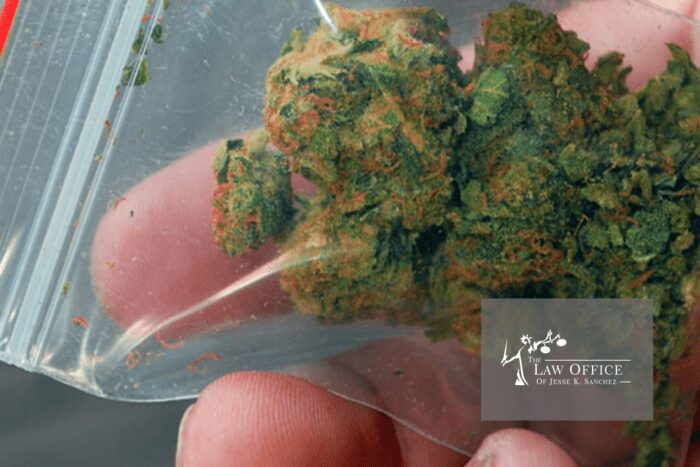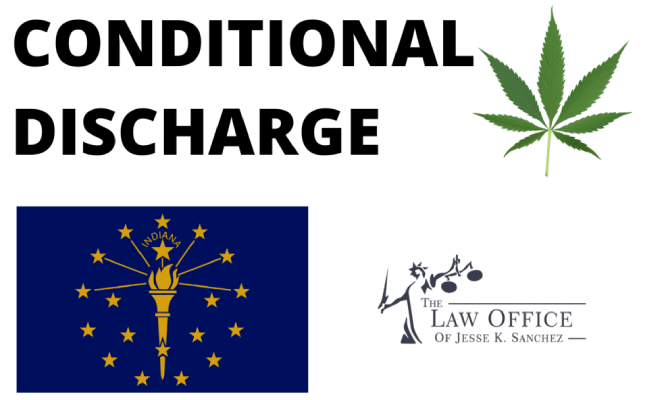Recently, the states of Michigan, Illinois and Ohio all legalized the use of marijuana in some form. Unfortunately, that doesn’t mean that marijuana is legal in Indiana. And even though in recent news, the Marion County Prosecutor made a statement that they would no longer pursue prosecution of marijuana possession of under one ounce, police officers can still write a summons or arrest people who are committing that crime, and the Prosecutors of surrounding counties and throughout Indiana have not taken the same position. Unfortunately, marijuana possession occurs. While marijuana possession is a crime, is it as serious crime that would need an OWI lawyer, like an OWI or a lawyer for a fraud defense? The State of Indiana has a law on the books, IC 35-48-4-12 Conditional discharge for possession as first offense, which is meant to deal with such indiscretions. If you are charged with marijuana possession, give an Indianapolis criminal attorney a call today at (317) 721-9858.
Technically, What is a Conditional Discharge?

A sentence of a person found guilty of a crime in which upon completion of specified actions by the accused, no criminal record issues as regards the offense for which a conditional discharge was granted. What is a conditional discharge? In short, a conditional discharge is a legal judgment that states that a person is guilty of a minor crime. Fortunately, there is no formal conviction, and the judgment is removed from the individual’s record after a certain period of time as long as various conditions of the conditional discharge are met. Traditionally, the conditions of a conditional discharge sentence are:
- Probation – The defendant has to successfully complete probation without incident
- Drug/Alcohol Counseling – Because the conditional discharge is often the result of a drug possession, successful completion of drug and alcohol counseling is often a condition of a conditional discharge sentence
- Community Service – The judge can make a requirement of conditional discharge, community service when a defendant is sentenced.
- Counseling – With drug abuse there may be an underlying mental health component that needs to be addressed. The court may make attendance/meeting with a mental health counselor as a condition of a conditional discharge sentence given by the court.
Take note: Until your conviction is discharged, you will still have a criminal record, and your conviction will appear on a criminal background check.

Types of Discharges
The discharge judgment is usually granted by the court in an attempt to act as a diversion with the intent of discouraging the individual from committing another crime in the future. There are two types of discharges available depending on the severity of the crime:
Conditional Discharge – A conditional discharge is slightly more severe than its absolute counterpart. It requires specific conditions to be met before the defendant is completely discharged from probation. Additionally, the discharge will appear on their record for three years and will be removed when the period is finished.
Absolute Discharge – This discharge means that there is nothing further required of the defendant; they are discharged and will only have the crime on their record for one year, after which it will be removed. Essentially this means you have pled guilty to the crime but there is no conviction.
Both discharges are usually used for less serious offenses like theft under $5,000, possession of small amounts of marijuana, and other mostly non-violent crimes. Additional factors that are considered before the judge allows for a conditional discharge are if the defendant has an existing criminal background and if there is a conviction for another crime.
The Conditional Discharge Indiana Law
Below is the Indiana law, IC 35-48-4-12 , which addresses conditional discharge for possession as a first offense.
IC 35-48-4-12 Conditional discharge for possession as first offense
Sec. 12. If a person who has no prior conviction of an offense under this article or under a law of another jurisdiction relating to controlled substances pleads guilty to possession of marijuana, hashish, salvia, or a synthetic drug or a synthetic drug lookalike substance as a misdemeanor, the court, without entering a judgment of conviction and with the consent of the person, may defer further proceedings and place the person in the custody of the court under conditions determined by the court. Upon violation of a condition of the custody, the court may enter a judgment of conviction. However, if the person fulfills the conditions of the custody, the court shall dismiss the charges against the person. There may be only one (1) dismissal under this section with respect to a person.
Does a Conditional Discharge in Indiana Mean You Are Free?
If you have received a criminal charge for first time possession of marijuana, a controlled substance, a Conditional Discharge in Indiana may be something available to you. Call Indianapolis drug crime defense attorney for a free consultation The Law Office of Jesse K. Sanchez at (317) 721-9858 for help. We are here and ready.




